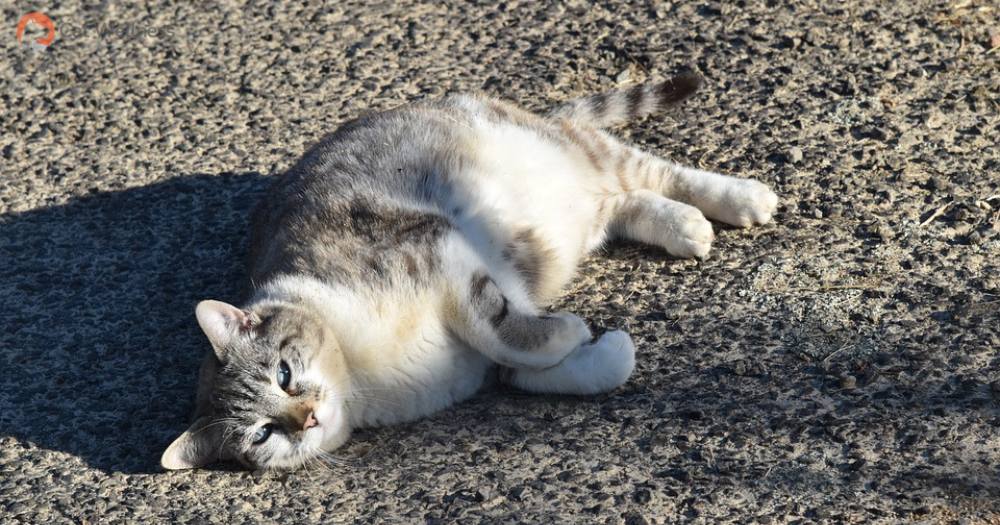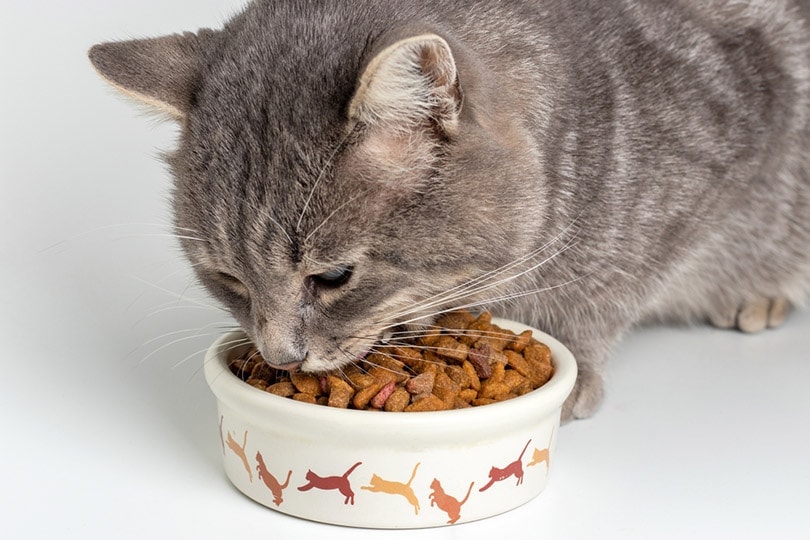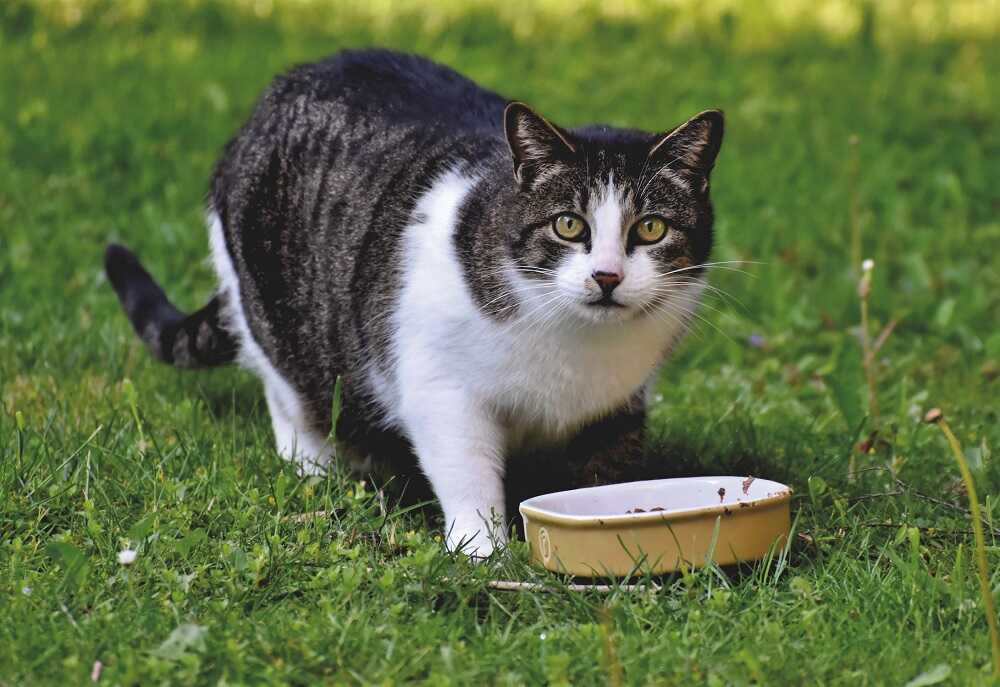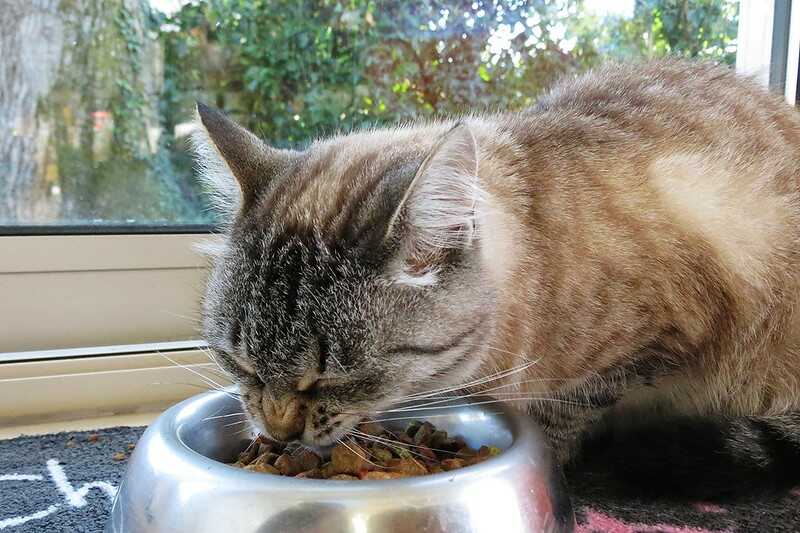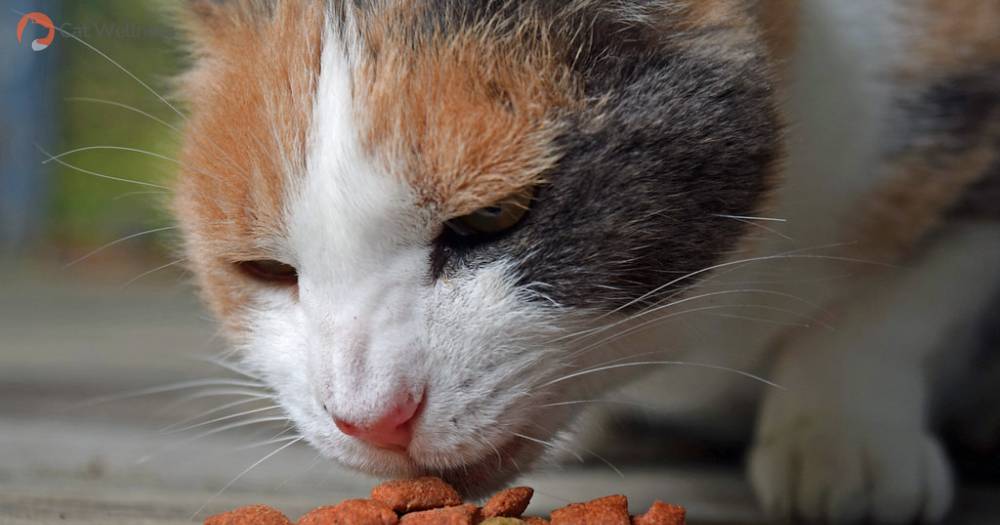If your region has several feral felines, you will undoubtedly notice these animals scream. It’s an unpleasant experience, especially during sleeping hours.
Do you want to address this issue? You must know the causes first. Why do stray cats cry at night?
This article will discuss the common reasons and recommend the most practical solutions. Let’s scroll down to uncover them!
Why Do Stray Cats Cry At Night?
Stray cats may cry at night due to cognitive dysfunction, medical issues, territorial reasons, hunger, thirst, fear, confusion, mating, or weather.
It’s worth noting that felines are more active at night. Thus, it’s not surprising to hear their crying at these times.
Understanding these causes can help you have suitable solutions. From that, you can have a good night. Keep reading to discover!
#1. Cognitive Dysfunction
Cats can develop cognitive problems like dementia when they grow older. They could experience confusion and disorientation as a result.
Cognitively impaired cats frequently cry during the night. They can feel insecure and have trouble seeing in the dark.
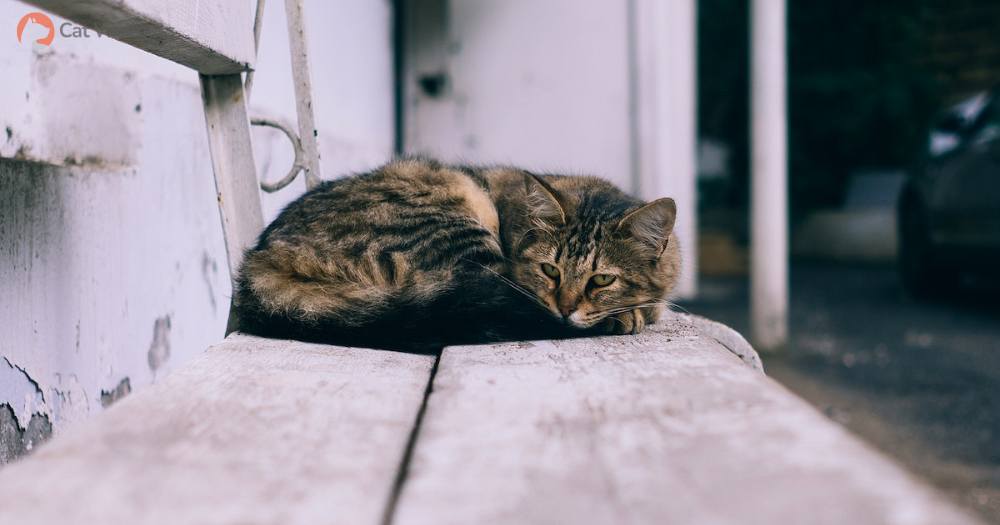
#2. Medical Issues
A stray cat may yowl due to various medical issues, particularly at night.
Examples of common conditions include hyperthyroidism, hypertension, and pain, particularly in middle-aged to elderly felines.
#3. Territorial Reasons
Felines are incredibly territorial animals and frequently go to great lengths to protect their area.
Stray cats frequently yowl loudly to scare away intruders. If these guests ignore the alert, they may start to fight physically.
#4. Hormones
Cats reach sexual maturity at about four months old. Thus, if you notice a female cat cream at night, it is in season. Also, male felines may howl at night while seeking a mate.
#5. Boredom
Boredom is a real thing for felines too! They can be active at night if they don’t have enough mental or physical activity throughout the day.
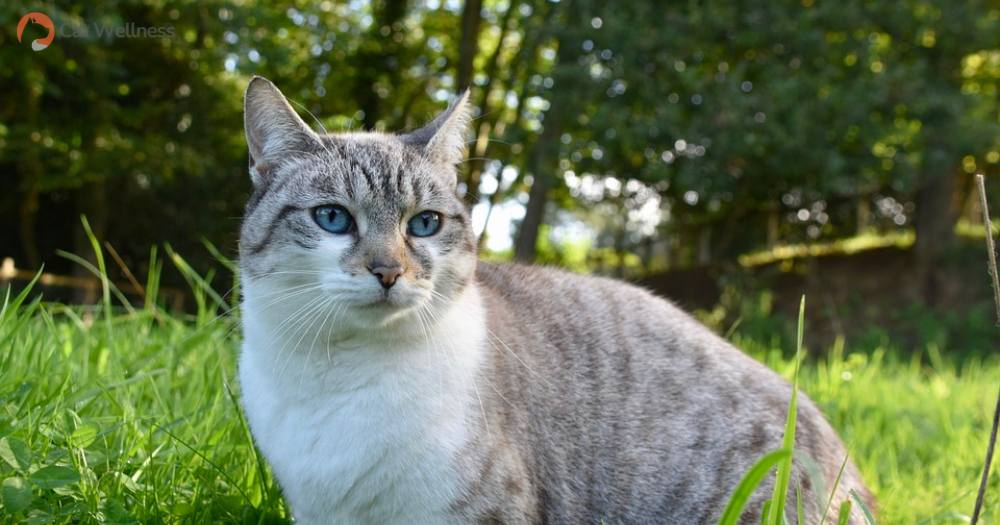
Related Post: Why Is My Cat Suddenly Scared Of Room?
#6. Hunger And Thirst
The existence of a stray feline is challenging and unexpected. One of the terrible realities that wild cats frequently face is hunger.
If you see a stray cat crying outside your house, it may want to enter inside because it’s starving.
#7. Fear
A frightened cat may scream to draw the attention of a savior and receive assistance.
#8. Confusion
Cats’ intellect worsens when they age. When their senses fail them, they will cry and shout in bewilderment.
#9. Mating
If you hear an unfixed scream from a stray cat, it may be a sign that it wants to look for a companion.
These feral felines yowl and shout to let other nearby cats of the opposing gender know that they’re ready to mate.
It is annoying if you try to sleep because this vocalization happens more often at night.
#10. Weather
A stray cat with a thick winter coat can survive the chilly nights during frigid months. On the other hand, felines with thin winter coats seek help by crying and moaning outside your house.
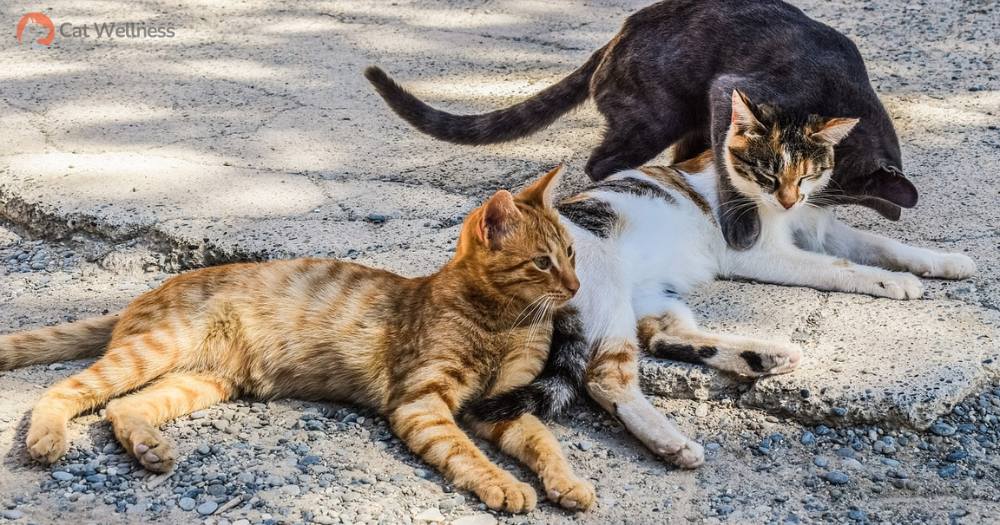
How Does The Sound Of Stray Cats Crying Affect The Community?
It’s unpleasant to hear these stray animals crying at night. Here are the adverse effects of these annoying sounds:
#1. Noise Disturbance
Anyone suffering from a feral feline crying at night agrees it’s an incredibly frustrating experience.
You can have trouble falling asleep due to the constant noise. You might wake up cranky and worn out the following morning.
Moreover, it affects your entire community and is not merely an issue for you.
Those working late may find it annoying if a cat constantly howls in their living spaces.
#2. Emotional Distress
Besides disturbing humans, stray cats’ nighttime howling and weeping can also create mental discomfort in those around them.
Handling feral animals sometimes leaves you feeling frustrated and hopeless, especially if they exhibit signs of discomfort or suffering.
For instance, you may feel guilty for the welfare of stray animals, especially if you’ve been providing them with food and care.
People with strong affection and compassion for animals may find this emotional drain particularly tough.
They may feel conflicted about seeking tranquility in their houses while desiring to help these animals.
#3. Impact On Human Physical Health
Another issue besides sleep deprivation is stress. The continual loudness can cause stress, which may also result in various health issues.
The World Health Organization (WHO) mentions that noise pollution is one of the top environmental stressors.
#4. Impact On Other Animals
The nighttime meowing and weeping of feral cats may negatively affect more than just people. It may also be problematic for nearby animals.
Research by the Royal Society for the Prevention of Cruelty to Animals found that stray felines may affect the surrounding bird population.
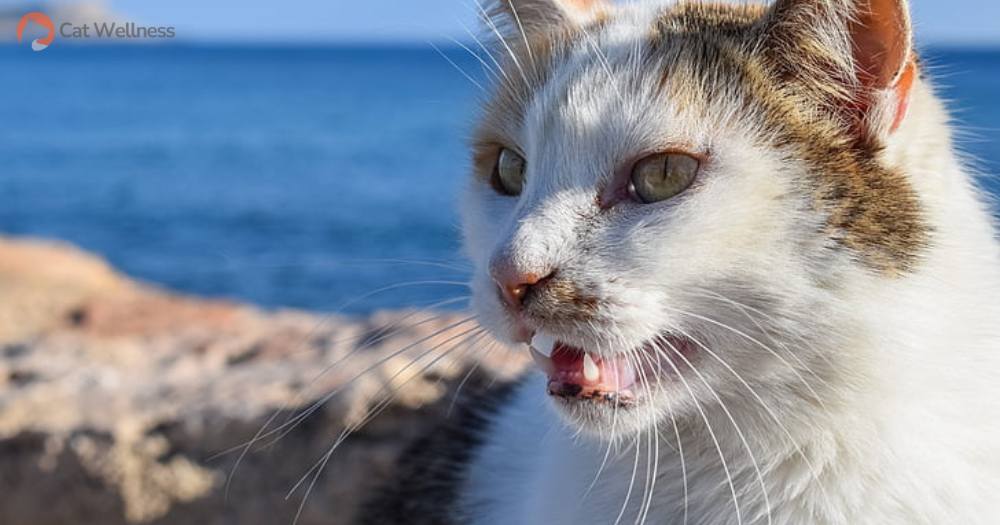
Related Post: Why Won’t My Cat Cuddle With Me Anymore?
How To Stop Stray Cats From Crying At Night?
Undoubtedly, it’s challenging to deal with a stray cat crying at night. However, you can still apply some ways to control this issue if it happens every night.
The following recommendations will be helpful. Let’s take a closer look!
#1. Feed And Provide Water For Stray Felines
You can give them food and water if you constantly deal with these stray animals crying at night.
Providing water and food to feral felines might lessen their yowling and enhance their general health and happiness.
It’s crucial to remember that feeding feral animals may have unforeseen repercussions, such as luring other kittens to your area.
Therefore, it’s advisable to do so under strict control, like by only leaving out food at certain times during the day.
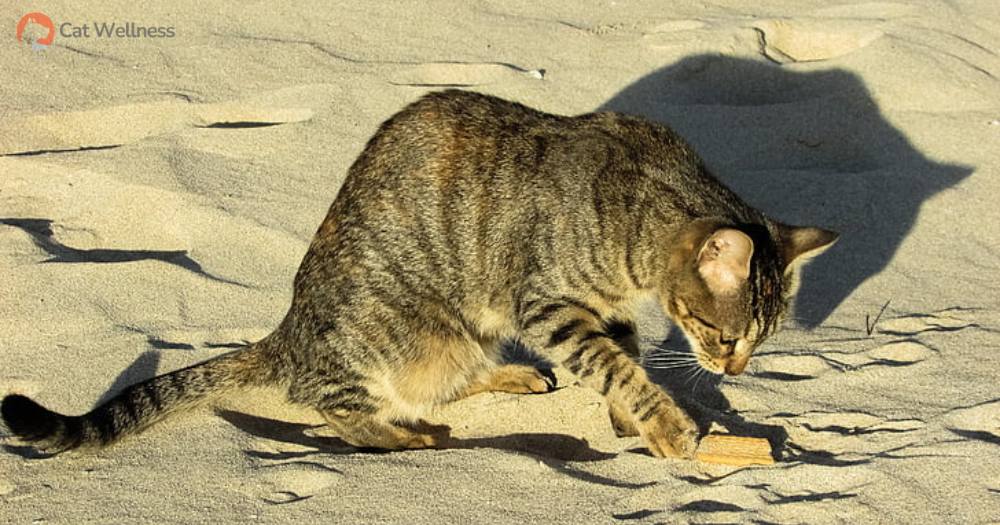
#2. Trap-Neuter-Return Programs
The second solution is to join trap-neuter-return programs, which can control the stray feline population.
As their names suggest, these campaigns involve trapping homeless cats, neutering them, and returning them to their native habitats.
This solution can enhance the general condition and conduct of the feline and assist in lowering the population of stray animals.
#3. Build Shelters For Stray Cats
Providing feral cats with safe shelters is another strategy that can enhance their well-being.
These homes can offer these stray animals refuge from the environment and potential predators. They are also a comfortable spot to relax and sleep.
Besides, it is crucial to build and maintain these shelters appropriately to prevent predators.
#4. Educate The Community About Pet Ownership
Educating the community on appropriate pet ownership is another strategy to solve this problem.
It may involve educating individuals on the value of neutering and spaying their cats and the significance of caring for their pets.
It could also involve educating everyone on the consequences of leaving or ignoring one’s pets.
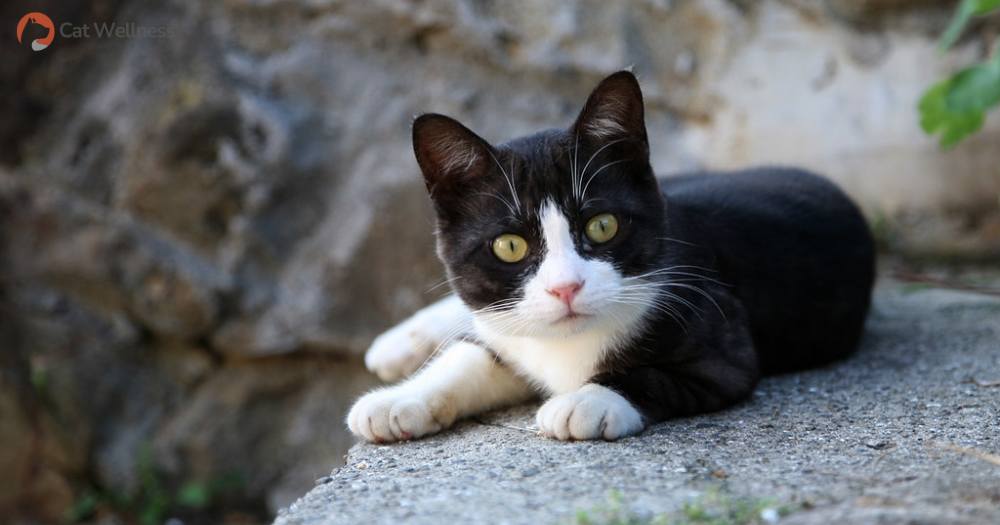
#5. Work With Local Authorities And Organizations
Working with governments and neighborhood organizations is the last successful solution for dealing with the screaming of feral cats at night.
This strategy may involve collaborating with animal protection organizations to implement Trap-Neuter-Return programs or offer resources for feral cats.
Remember that feral cats howling noisily at night is a public issue that calls for a collaborative effort to solve.
Therefore, it may also include discussions with local authority representatives and implementation campaigns.
In A Nutshell
Why do stray cats cry at night? These animals may scream during sleeping hours because of cognitive dysfunction, boredom, health problems, confusion, territorial reasons, thirst, hunger, fear, mating, or weather issues.
These loud meowing sounds cause several negative impacts on surrounding humans and animals.
Therefore, it’s best to prevent this issue by providing food and water for these felines, conducting trap-neuter-return programs, and working with the local governments.
If you have other creative ideas, share them with us in the comment section below. Thanks for reading!

